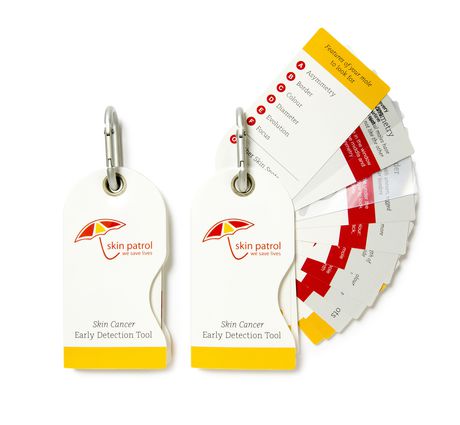Australians avoiding skin checks despite skin cancer concerns

81% of Australians are worried about at least one mole on their skin, yet haven’t had their skin checked by a doctor in the last 12 months, according to research released by Australian mobile medical practice Skin Patrol.
The research suggests Australians have a ‘head in the sand’ approach to skin spots monitoring. As a result, Skin Patrol has now developed an in-home or at-work early detection skin cancer tool that is designed to help users of the tool identify those skin spots that should be checked by a professional.
While the ABCDE method is considered clinical best practice, many people either aren’t aware of it or find it confusing. The Skin Cancer Early Detection Tool is designed to simplify the ABCDE method into five easy-to-answer, yes/no questions and help take the guesswork out of self-checking.
Tabs in the tool allow the user to check for the most common characteristics of melanoma: asymmetry, border regularity, colour, diameter and evolution. Each tab offers an easy-to-use aid such as a magnifying window, diameter measurer or colour chart.
Skin Patrol has checked the skin of over 100,000 patients in the last 10 years. “This tool can relieve the anxiety that stops people getting a skin check and help save many lives,” said Sam Holt, Skin Patrol founder and creator of this tool. “Right now thousands of Australians are unaware they are living with melanoma. We want to help people check their skin regularly and properly.”
Skin Patrol Medical Director Dr Peter White agrees. “This tool makes it easy to self-evaluate the skin. It is consistent with recommendations of the Skin Cancer Foundation and I have no doubt it will be a very useful device in detecting early skin cancers.”
For further information about the tool and supporting videos, visit iamskincancer.com.
Smoke complexity, skin absorption and protective equipment in firefighter safety
To address health and safety questions raised by Australian firefighters, researchers have...
Will silicosis compensation costs rise despite Victoria's engineered stone ban?
Monash University researchers have explored whether silicosis compensation costs are set to...
Army aims to combat heat risk with wearable monitor prototype
A wearable heat risk monitor prototype for the Australian Defence Force is being trialled by Army...







